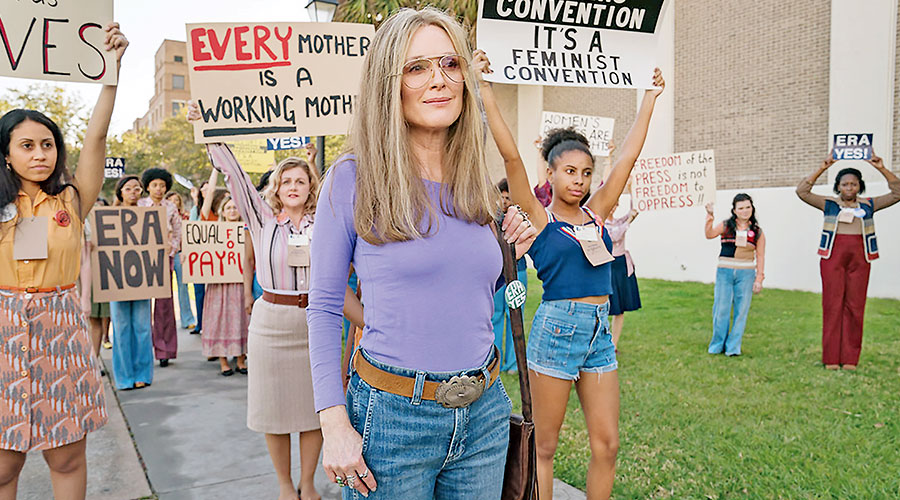What’s to watch on Netflix?
- 13 Apr - 19 Apr, 2024

Covering 80 years in the life and work of one of the key figures of the American feminist movement, whose influence has stretched across generations, Julie Taymor's nontraditional biopic The Glorias certainly can't be faulted for lack of ambition. But sometimes breadth comes at the expense of intimacy, which factors only intermittently in this deeply admiring but frustratingly choppy encapsulation of the legacy of Gloria Steinem. Threaded throughout with stylistic extravagances that can feel intrusive, the film is most exciting when its dramatic scenes are intercut with archival footage to celebrate inspirational milestones in the history of women's rights.
That archive material includes powerful images of the 2017 Women's March, both in Washington and around the world, with extensive excerpts from Steinem's characteristically optimistic speech offering hope at the dawn of a new dark age. The resurgence of energy in the debate around gender parity, reproductive rights and other issues for which Steinem has been fighting since the late '60s gives the film timeliness and urgency.
What it could have used more of is cohesion. The script by Taymor and playwright Sarah Ruhl hurtles from one incident to another in a shuffled chronology that is never difficult to follow but too infrequently gives events room to resonate. It's consistently absorbing, as is to be expected from any account of such a remarkable life of activism and passionate social engagement. But structurally, The Glorias blurs the line between freewheeling collage and mess, its directorial flourishes sometimes smacking of self-indulgence.
Based on Steinem's 2015 memoir My Life on the Road, the movie is conceived as a road trip through memory, built around an overused narrative device Taymor calls a "Bus Out of Time." This Greyhound coach – shot by cinematographer Rodrigo Prieto in black and white, while the world passing by outside the windows is in vibrant colour – allows the fragmented Steinem to interact with herself at different ages, expressing uncertainty and regret as much as wisdom and self-assurance.
She is played as a child by Ryan Kiera Armstrong, as a young teenager by Lulu Wilson, in her 20s and 30s by Alicia Vikander and from her 40s to the present by Julianne Moore. All four have lovely moments, and while Taymor's film overall lacks fluidity, their performances do fit with surprising neatness into a single, steadily evolving characterisation.
COMMENTS